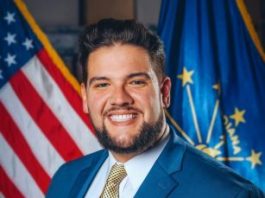Dave Stafford for www.theindianalawyer.com
A St. Joseph County man’s burglary conviction was reversed Monday by the Indiana Court of Appeals. The state’s knowing use of perjured testimony to obtain the conviction led the panel to refer the case for possible disciplinary action against a prosecutor.
“We are troubled that the State knowingly proffered perjured testimony but are even more concerned that the State granted the witness immunity from prosecution, which encouraged such testimony,†Judge Edward Najam wrote in an endnote in Antonio Smith v. State of Indiana, 71A04-1312-CR-609. “Thus, we direct the Clerk of this Court to send a copy of this opinion to the Disciplinary Commission. We also note that instances of prosecutorial misbehavior continue to come before us on appeal notwithstanding our admonishments.â€
A jury convicted Antonio Smith of the Class C felony after a witness, Nicole Greenlee, testified that Smith had broken into a Dollar General store. Greenlee, though, had previously pleaded guilty to the crime in which she admitted breaking in. Greenlee testified despite defense objections that this was perjury and should result in a mistrial. Smith was sentenced to four years in prison.
Video surveillance from the store showed a white woman breaking into the store. Greenlee is white and Smith is African-American. The state offered testimony from an officer who said cell phone records showed Greenlee and Smith were in close proximity. On cross-examination, though, the detective said he didn’t know how far away each cell phone was.
“Greenlee gave perjured testimony as a matter of law at Smith’s trial. …(A) conviction based on perjury will not be upheld. … Perjured testimony renders a witness’ oath to tell the truth, the whole truth, and nothing but the truth meaningless. Perjured testimony contaminates a trial, violates due process and strikes a blow to the heart of our judicial system,†Najam wrote.
The state had offered Greenlee immunity for her testimony, Najam wrote, but also had a duty to correct her perjury and should have joined the defense motion for a mistrial.
The opinion does not identify the prosecutor who allowed the perjured testimony.



